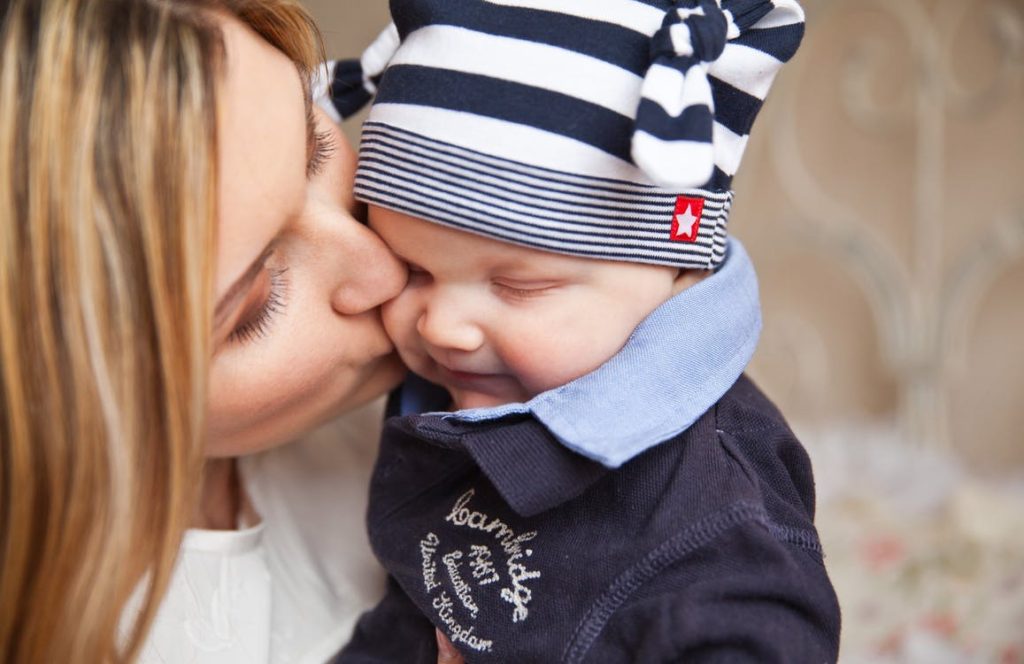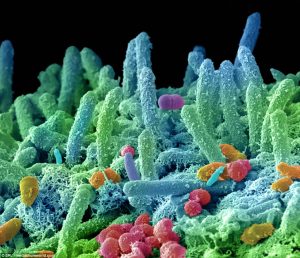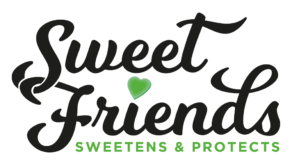
21 Jun A Parents Guide: Caring for your baby’s teeth with Xyiltol
By: Dr Ellie Philips, DDS
Important Facts
- Parents and caregivers transfer cavity causing bacteria to baby when they kiss, taste food or share the same spoon with baby.
- The Centers for Disease Control states tooth decay is the most common chronic disease of childhood
- Cavities are preventable
- Cavities in baby teeth starts as a weakened area that crumbles into a bigger problem
- Many children cannot describe the pain that cavities cause and may instead act tired, fussy, restless or not sleep well at night.
- Millions of school days are missed each year because of dental disease and cavities.
- Cavity infection is transferred from baby teeth to the child’s permanent teeth
The 1st Year
1st Year
When your baby has a new first tooth, this tooth will usually be infected with the same bacteria that live on your teeth: either healthy or cavity-forming ones.
Eating xylitol encourages healthy germs to grown on your teeth , so that healthy germs will be passed to your baby.
First teeth often erupt before the 1st birthday. If friendly germs are first to reach a new tooth they will take over and live there. (this is called colonising the tooth). When friendly germs grow on new teeth, the child’s chance of future cavities can be reduced by 80%.
The 2nd Year
During the second year baby molars begin to erupt. Molars have crevices that will be perfect places for cavity causing bacteria to hide. It is difficult to properly clean these teeth. This is why is is especially important to protect your baby with xylitol.
The Baby Bottle
The most important thing about the baby bottle is what you put in it. Although cow’s milk is safe, formula contains sugars that can promote the growth of cavity causing bacteria. Be sure to clean your baby’s mouth after feeding, this is also important if you breastfeed.
Do not ever put your baby to bed or down for a nap with formula or juice in the bottle. Instead use a solution of cow’s milk or water sweetened with a quarter teaspoon of granular xylitol. Xylitol is perfectly safe and will actually prevent the growth of cavity causing bacteria
Cleaning Baby Teeth
Keeping new teeth clean is important because new teeth are soft and easily damaged by acids.
Many children’s toothpastes are dangerous because they contain sugar or sorbitol. Try our specially formulated Tooth gels and Tooth pastes for children. Be sure baby has their own tooth brush and disinfect it regularly.
Toddlers
Toddlers are very busy little people, wanting to do more things on their own. They love to learn at this stage and now is the most important time to establish a regular dental care routine.
Encourage your toddler to brush his or her teeth on a regular basis. Begin to teach them to brush especially before bedtime and make this part of their regular bedtime routine. Use only a pea-sized amount of toothpaste.
This is also a great time to introduce xylitol in any form, granular, gum, mints or lollipops. Toddlers love candy and xylitol products are a healthy substitute that will hep protect and strengthen their teeth.
At this state your toddler is still napping regularly and may be prone to ear infections an frequent colds picked up at daycare. This may cause your toddler to breath through their mouths as they nap and cause their mouth to become dry and more prone to cavities without the natural protection of saliva. Encourage your toddler to eat xylitol sweets or have a xylitol sweetened drink before nap time. Research has shown that ear infections can be reduced by up to 40 percent with regular use.
Sippy Cups
Sippy cups were created to help children transition from a bottle to drinking from a regular cup, but they’re too of often used for convenience. When kids use sippy cups for extended periods they’re exposed to a higher risk of decay.
You may think that juice is healthy for a child, but juice can damage teeth. Apple and grape are very acidic drinks in a sippy cup and create prolonged acidity on the teeth which cause a very damaging form of tooth decay. Most juices are acidic and will pull minerals out of teeth and soften them. Kool-aid, soda, sports drinks and fruit punch are also very acidic.
For a child who relies on a juice filled sippy cup at least break up the exposure by introducing tooth safe foods or xylitol snacks at regular intervals.
Tooth Safe Foods
There are many foods that are safe for teeth and healthy choices for snacking. It is always a great idea to end a meal with a tooth safe choice. Among these are cheese, bananas, vegetables and milk. Basically any food that is not too acidic.
About Xylitol
Xylitol can help everyone strengthen and protect their teeth.
Hundreds of studies have confirmed the safety and health benefits of xylitol.
Granular xylitol looks and taste like sugar (sucrose) but is healthy, diabetic friendly, and has 40% fewer calories. Xylitol is delicious.
Xylitol is found in fibers of fruits and vegetables and our bodies also naturally produce a small amount of it. Xylitol was used in diabetic treatments over 100 years ago. Birch wood was the original source of xylitol but it is also made from Corn Husks.
Xylitol has been used in Europe for baking, cooking, and to sweeten coffee and tea since World War II.
Long terms studies show:
- Xylitol can prevent cavities
- Xylitol reduces plaque and bacteria
- Xylitol can heal early cavities
- Xylitol can replace minerals in enamel
- Xylitol helps increase saliva
- Xylitol can prevent ear infections in children
- The benefits for children is eating approximately one teaspoon (6.5g) of xylitol regularly while teeth are erupting
- Choose 100% xylitol for maximum effect.
About Dr. Ellie Philips
Dr. Ellie Phillips is a mother of five children, four girls and one boy.
Dr Ellie is a dentist specialising in preventive dental care. She has years of dental experiencing caring for geriatric patients, special needs children and adults and the developmentally disabled. Dr. Ellie was in private practice for many years and particularly enjoyed working with the fearful and phobic.
Dr. Ellie is a member of the American Dental Association, the New York State Dental Association and the American Academy of Pediatric Dentists. She is a graduate of Eastman Dental Center, Rochester, NY with qualifications in pediatric and general dentistry. She is an honorary member of the Eastman Academy, University of London, England. Recently Dr. Ellie was the pediatric outpatient clinical director at the Eastman Dental Center and a faculty member at the member at the University of Rochester.
Dr. Ellie has lectured to dental and medical professions on ways to identify and prevent tooth decay for babies, children and adolescents. For over 30 years she has worked to show people how tooth decay and gum infections are preventable diseases.
